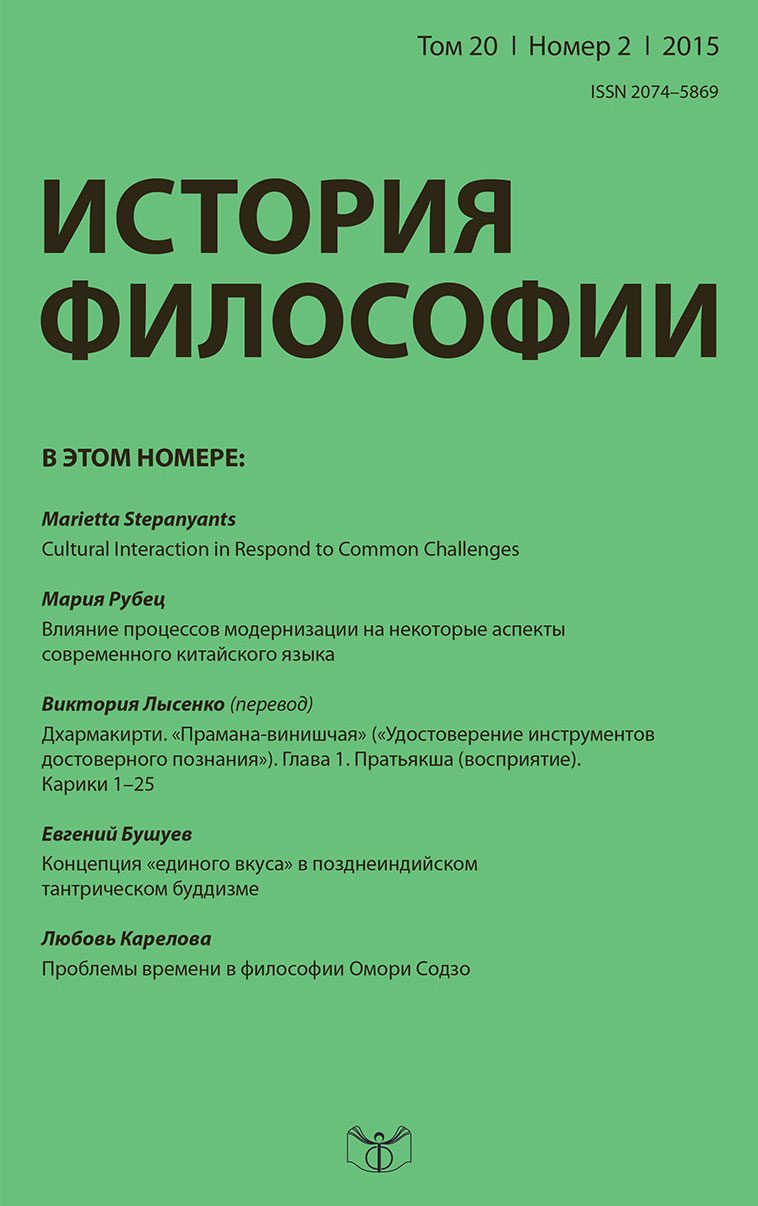The Impact of Modernization Processes on some Aspects of the Modern Chinese Language
Keywords:
архаическое мышление, научная терминология, эмотиконы, китайский язык, перцептивные представления, поликодовый текст, архаическое мышление, научная терминология, эмотиконы, китайский язык, перцептивные представления, поликодовый текстAbstract
The article highlights the problem of the influence of globalization and technological progress on
some aspects of the Chinese language: the borrowing process and the formation of new terms, the
development of vocabulary, emoticons and other phenomena accompanying the internet and sms communication. Science (chemical) terminology, as well as online vocabulary (policode texts, in
particular, emoticons) show the tendency to use perceptual representations, i.e. compositing new
hieroglyphs to denote chemical compounds from the keys in the hieroglyphs denoting the reacting
chemicals; using hieroglyphs as parts for new emoticons relying on their resemblance with human
expressions etc. It is concluded that the Chinese speaker has a general disposition for thinking
in spacial patterns, which has not transformed much, despite the processes of modernization and
globalization.

